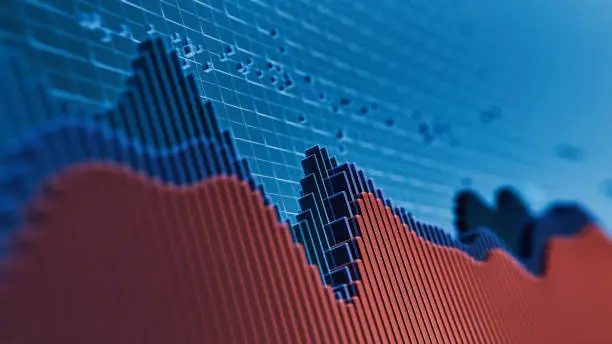The terms “recession vs inflation” often dominate news headlines and economic discussions, yet many people struggle to fully understand what these terms mean and how they impact the broader economy. Inflation measures the rate at which prices for goods and services rise, eroding purchasing power over time. A recession, on the other hand, is a period of negative economic growth that leads to reduced consumer spending, lower wages, and higher unemployment. Although these two conditions are distinct, they are interrelated, with one sometimes causing or exacerbating the other. For instance, high inflation can lead to decreased spending, which may then result in a recession. Conversely, during a recession, inflation might decrease as demand for goods and services falls.
In this article, we will dive into the details of “recession vs inflation,” their causes and effects, and explore practical steps individuals can take to protect their finances during both economic conditions.
What Constitutes a Recession?
A recession is a phase in the economic cycle where a country experiences negative growth in its economy for a prolonged period. Typically, this is defined by two consecutive quarters of declining Gross Domestic Product (GDP). During a recession, businesses see reduced consumer spending, leading to lower profits. This slowdown can trigger higher unemployment rates, as companies scale back operations to save costs.
The Mechanics of a Recession
A recession can be triggered by various factors, such as a sudden increase in interest rates, a sharp drop in consumer confidence, or external shocks like pandemics or wars. These events cause a reduction in spending, which decreases the demand for goods and services. Consequently, businesses face lower revenues and may begin laying off employees, creating a ripple effect in the labor market. A decline in wages, coupled with rising unemployment, leads to even less consumer spending, which exacerbates the downturn.
While recessions are typically associated with negative economic outcomes, they can also have beneficial effects in certain situations. For example, recessions often lead to a reorganization of inefficient industries and the emergence of new growth opportunities in more innovative sectors.
Inflation Explained: What You Need to Know
In contrast to a recession, inflation is the rate at which the general level of prices for goods and services rises, eroding purchasing power over time. Simply put, as inflation increases, the same amount of money buys fewer goods and services. Inflation is typically measured by indices such as the Consumer Price Index (CPI), which tracks changes in the prices of a selected basket of consumer goods and services.
Causes and Effects of Inflation
There are various reasons why inflation can occur. Demand-pull inflation happens when demand for goods and services exceeds their supply, driving prices up. Cost-push inflation occurs when the cost of production increases (e.g., higher wages or material costs), which businesses pass on to consumers in the form of higher prices. Additionally, inflation can be influenced by external factors, such as currency depreciation or global supply chain disruptions.
Inflation affects different segments of society in varying ways. For instance, people on fixed incomes, like retirees, may struggle with rising costs, while borrowers may benefit from inflation if their debts remain fixed but their incomes rise with inflation. On the other hand, those who hold cash savings or have investments in assets like bonds may see their wealth erode in real terms.
Recession and Inflation: Can They Occur Simultaneously?
While recessions and inflation might seem like opposing forces, they can occur simultaneously, resulting in a situation known as stagflation. Stagflation is a rare but challenging economic condition where inflation remains high despite stagnant or declining economic growth. This typically occurs when supply-side shocks, such as an energy crisis, drive up production costs while demand for goods and services remains weak.
The Link Between Inflation and Recession
Inflation can contribute to a recession if it forces central banks to raise interest rates. The Federal Reserve, for instance, often increases interest rates to curb inflation, which can have a cooling effect on the economy. Higher interest rates make borrowing more expensive, thus reducing consumer spending and business investments. This, in turn, leads to lower economic growth and may eventually trigger a recession.
On the other hand, recessions can have the opposite effect on inflation. As economic activity slows, demand for goods and services diminishes, which can lead to a drop in prices. In a severe recession, inflation might even turn into deflation, where prices fall across the board, which can have negative effects on the economy.
How to Prepare for Recession and Inflation
Given the unpredictability of inflation and recession cycles, preparing for both is crucial for maintaining financial stability during turbulent economic times. Here are some practical strategies to help safeguard your finances:
1. Build an Emergency Savings Fund
Regardless of whether inflation or recession hits, an emergency fund is your best defense. This cash reserve can help cover unexpected expenses and provide a buffer during periods of high inflation, where the cost of living may rise unexpectedly. During a recession, it can also help tide you over if you lose your job or face a reduction in income. Ideally, aim for enough savings to cover at least three to six months of living expenses.
2. Diversify Your Investments
Diversifying your investment portfolio can help protect you from the risks posed by both inflation and recession. When inflation is high, certain assets like real estate, stocks, and commodities tend to perform better because they act as hedges against inflation. Conversely, during a recession, more conservative investments like bonds and dividend-paying stocks may offer stability. By diversifying, you ensure that your investments are spread across multiple sectors and asset classes, reducing overall risk.
3. Evaluate and Adjust Your Spending
Recessions and inflation both have a significant impact on your purchasing power. During inflationary periods, the price of everyday goods and services increases, which could strain your budget. Meanwhile, a recession might cause job insecurity or reduced wages, further limiting your financial flexibility. Evaluating your spending habits and adjusting your budget is essential. Focus on cutting unnecessary expenses while still maintaining your long-term financial goals, such as saving for retirement.
4. Stay Informed and Monitor Economic Trends
Understanding the broader economic trends can help you make informed decisions. Track inflation rates, economic growth indicators, and unemployment data to stay ahead of potential shifts in the economy. If you’re uncertain about how inflation or a recession might affect your finances, consider speaking with a financial advisor to develop a strategy tailored to your situation.
The Role of Central Banks: Managing Inflation and Recessions
Central banks, such as the U.S. Federal Reserve, play a key role in managing inflation and mitigating recessions. They do this by adjusting monetary policy, primarily through changing interest rates. In times of inflation, the central bank may raise interest rates to cool the economy and prevent runaway price increases. Conversely, during a recession, the central bank may lower interest rates to stimulate economic activity by making borrowing cheaper.
The timing and magnitude of these interventions are critical. If central banks raise interest rates too aggressively, they could inadvertently trigger a recession. On the other hand, if they keep interest rates too low for too long, they might allow inflation to spiral out of control.
How Recessions and Inflation Affect Different Economic Sectors
Both recessions and inflation impact various sectors of the economy in different ways. Let’s take a closer look at how these phenomena influence key industries:
Real Estate
During inflationary periods, real estate prices often rise as demand for properties outpaces supply. However, when a recession hits, the housing market can cool down due to reduced consumer spending and increased mortgage rates. This makes homes more expensive and harder to afford for many people.
Stock Market
The stock market tends to react to both inflation and recessions, though not always in predictable ways. High inflation can reduce consumer spending, which negatively impacts corporate earnings and stock prices. However, in recessions, stock prices can fall due to economic uncertainty, but they often recover over time.
Consumer Goods
During inflation, the cost of raw materials increases, pushing prices higher for everyday products. On the flip side, during a recession, reduced demand can lead to price cuts, but businesses may also cut back on production or even go out of business, leading to fewer options for consumers.
Recession vs Inflation: The Ongoing Debate
In conclusion, “recession vs inflation” is a nuanced topic that has a profound impact on the economy and individual lives. While these two economic conditions often coexist, understanding their dynamics and preparing for them can help you navigate through financial challenges. By building a solid emergency fund, diversifying your investments, and staying informed about the economic landscape, you can weather the storm of both inflation and recessions.
For more information on how to prepare for economic downturns and gain financial knowledge, check out the Key to Study Investment Course. Stay connected with us on our Facebook Page for more tips and updates.
Recession vs inflation might seem like two separate forces, but their interconnected nature highlights the need for careful financial planning and vigilance in both good times and bad.

